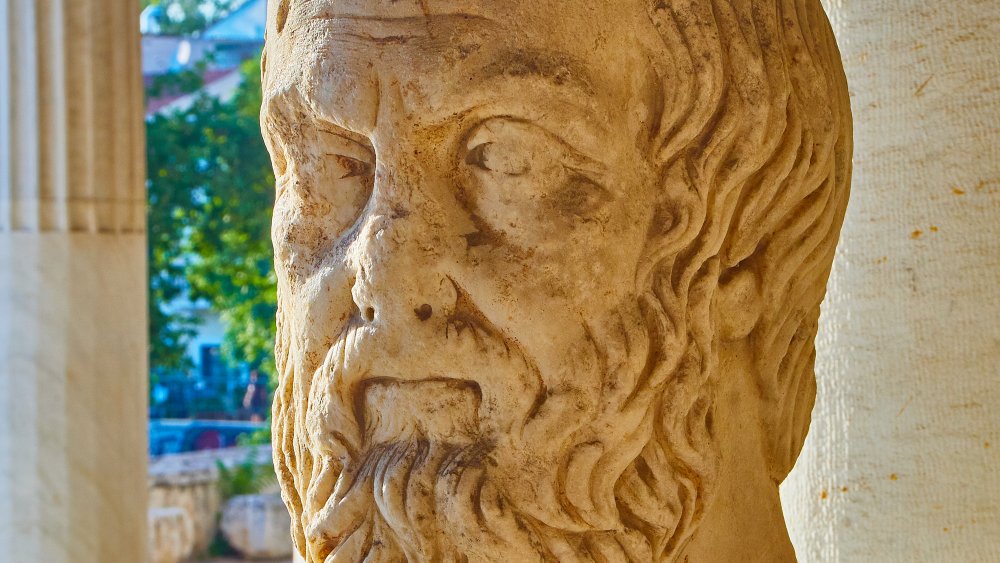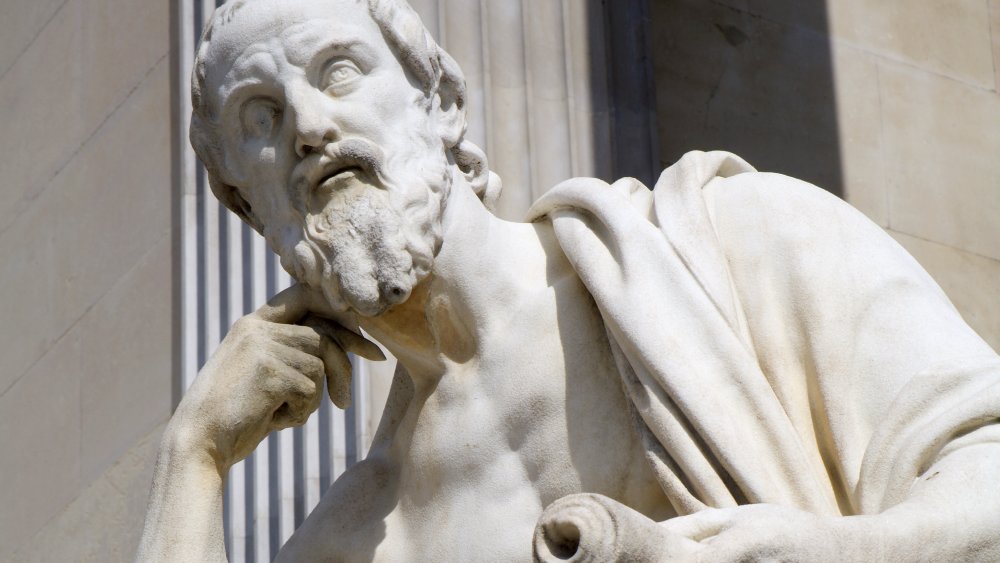What You Probably Didn't Know About Herodotus, The First Western Historian
"Your history grade isn't very good," says the parent, reading the report card. "When I was your age, I was getting top marks in that subject." "When you were my age," replies the child, "there was a lot less history to learn." So imagine learning history when there wasn't any to learn — at least, none that had been written down. That was the case until Herodotus entered the scene, generally accepted as the first true written historian with The Histories, recounting the story of the Greco-Persian Wars — what Encyclopedia Britannica calls "the first great narrative history."
Record-keeping being what it was in Ancient Greece, we aren't positive when Herodotus was born — probably around 484 BCE, says Britannica. Around 425 he set down in writing his histories — the Greek root word means "inquiries" — as far as we know, the first attempt at objective recording of historical events, making him the "father of history," says Brown University.
History explains that Herodotus not only recorded events, but attempted explanations as well, delving into the causes and effects systematically and thoroughly. He wrote (in the English translation, of course) "in order that the deeds of men not be erased by time, and that the great and miraculous works — both of the Greeks and the barbarians — not go unrecorded."
Though he had his critics, modern research tends to affirm his writings
Of course, he also has his critics, who give him the appellation "the Father of Lies," asserting that his works are nothing more than tall tales that he collected in his wanderings. One of his contemporaries was Thucydides, says History, another historian and one of Herodotus's chief critics at the time. The Ancient History Encyclopedia looks at it this way: "While it is true that Herodotus sometimes relays inaccurate information or exaggerates for effect, his accounts have consistently been found to be more or less reliable." Which, as history goes, even today, is pretty good.
It's Herodotus who gives us the story of the Battle of Marathon (and yes, the roots of that distance foot race today), says Ancient History Encyclopedia, as well as the story of the Amazons, and recent research in the fields of archaeology and ethnology have tended to back him up. His narrative devices have also continued to influence writers today, mixing straight narration of events with asides and digressions, not only providing important information but entertaining at the same time. "In the sense that he created a work that is an organic whole, Herodotus was the first of Greek, and so of European, historians," says Britannica.

